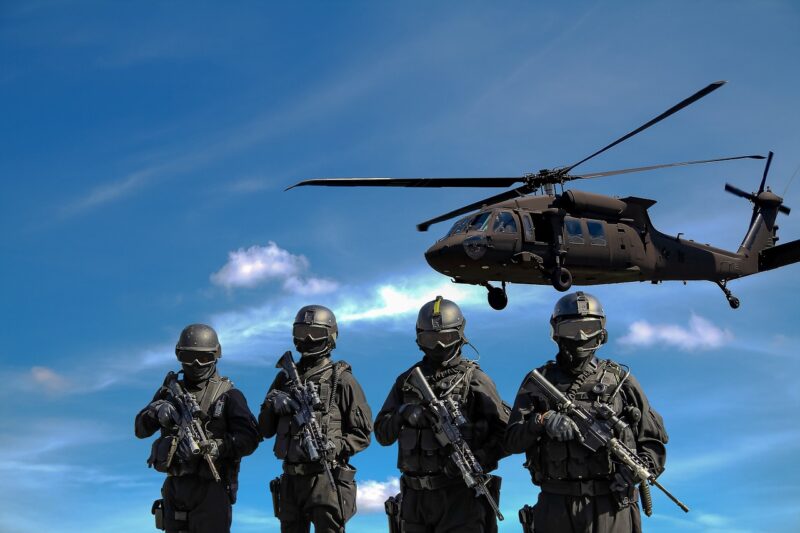
On the surface, the history of Britain’s military exploits is often portrayed as a more serious matter, exploring great battles and imperial conquests. However, interspersed throughout this history are moments of unexpected folly that can make even the most seasoned military strategist break into laughter. One such event involved an accidental invasion of Spain during World War II—an episode that, while serious in its implications, showcases the absurdity of military miscommunications and geographical biases.
The Historical Context
To fully grasp what transpired, one must first look back at the chaos of World War II. As countries were drawn into the conflict, the British military was indefinitely stretched. Britain had to create and maintain alliances, respond to threats from the Axis powers, and manage various military campaigns across Europe and North Africa. The stakes were high, and the situation was fluid, which often led to unfortunate blunders.
The year was 1943, and the British had established their presence in the Mediterranean, especially with their North African Campaign aimed at pushing back against Axis forces. In the midst of this expansive campaign, various operations and loose plans were drawn up that would contribute to further conflicts.
Operation Flounder: A Mistaken Order
Enter Operation Flounder. This military exercise was meant for a covert landing operation in the Mediterranean, primarily aiming at the shores of Sardinia. However, due to a mixture of haphazard planning and navigational errors, some units of British forces were inadvertently directed towards the coastline of Spain instead.
This was largely attributed to a combination of rapidly changing orders, hasty decision-making, and perhaps a pinch of old-fashioned navigational errors. A few Royal Navy ships, some small landing craft, and a battalion of troops set sail towards what they thought was an unguarded stretch of land, only to find themselves unexpectedly patrolling the sandy beaches of Spain.
The Awakening: Encounter on the Spanish Shores
When British forces finally made landfall, it took them a while to grasp the magnitude of their folly. Spanish beachgoers, blissfully unaware of the military blunders unfolding, stared wide-eyed at the incoming troops clad in camouflage gear, prepared for what they believed would be a surprise attack. As the troops emerged from their boats, they raised their weapons, prepared for a hostile engagement.
However, instead of a military confrontation, they were greeted by the lively atmosphere of sunbathers and locals enjoying their day at the beach. Spaniards, recognizing the peculiar situation unfolding, quickly began to document the unlikely ‘invasion’ with cameras—making this one of the most documented military blunders in history.
Eventually, through a mix of laughter and confusion, the message spread among the troops: they were not in a war zone, but rather in Spain—the home of sangria, flamenco dancing, and a cordial, albeit surprised, populace.
Diplomatic Fallout and Resolution
The situation, despite its ridiculousness, could have had severe diplomatic consequences. The Spanish government, led by Francisco Franco at the time, was officially neutral in the conflict but had leanings toward the Axis powers. Fortunately for the British, Franco’s regime was more amused than angry.
British officials scrambled to mend what could have turned into an international incident. Diplomatic cables flew back and forth, with the British government trying to assure the Spanish that it was merely a misunderstanding and that all troops would promptly leave the shores. Fortunately, humor prevailed in this situation, and tensions quickly eased.
Rumor has it that the British and Spanish governments eventually laughed off the incident, acknowledging it as a comedy of errors. What could have been a catastrophic diplomatic incident turned into an amusing anecdote, demonstrating how easily misunderstandings can happen in military operations.
Legacy of the Accidental Invasion
In the years that followed, the accidental invasion became a staple of military folklore, recounted at gatherings of military veterans and in many World War II history discussions. It serves not only as a reminder to soldiers of the absurdity of war but also as a lesson against presuming knowledge about unfamiliar territories without due diligence.
Furthermore, military historians have utilized this incident to showcase the importance of clear communication and the pitfalls of hastily drawn plans. The idea that a significant military force could be led unwittingly into the wrong country highlights the whimsical side of often dire historical events.
Ultimately, this story embodies how ridiculous yet fascinating human history can be: woven together by incredible tales of bravery, unfortunate blunders, and, occasionally, episodes that remind us all to take a step back, laugh, and appreciate the uncanny turns of fate.
Conclusion
The day Britain accidentally invaded Spain may not be a day often studied in textbooks, but it remains an essential part of the tapestry of military history. It adds a comedic element to an otherwise grueling chapter of global conflict, reminding us that sometimes history can take unexpected, humorous twists. As we reflect on military strategies and decisions made in dire circumstances, we should also remember the lighter moments that add a unique flavor to our understanding of these events. Amidst the chaos of war, humanity appears in the most unexpected places, often with a good laugh to follow.
Thus, when discussing the battles, strategies, and blunders of history, the tale of the accidental invasion of Spain reminds us of the humor and humanity in even the most trying times.







